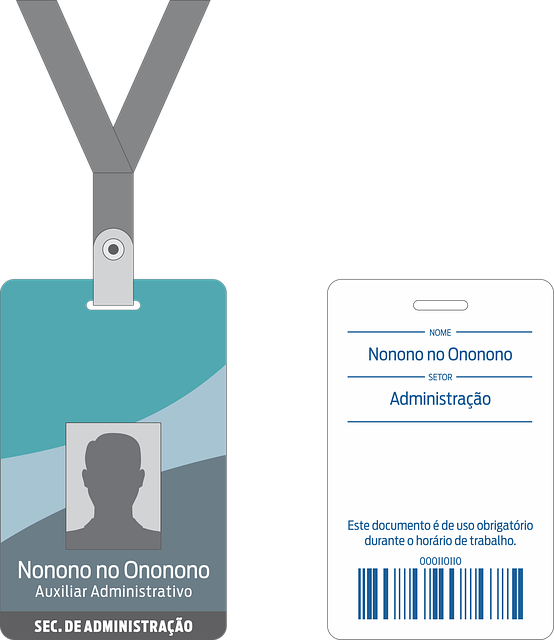The Vehicle Identification Number (VIN) serves as a transparent record of a vehicle's history, detailing manufacturing specs and accident records, crucial for buyers making informed purchase decisions. It deters fraud by making data manipulation difficult. In today's fast-paced car sales environment, thorough verification through VIN cross-referencing with databases is vital to avoid deceptive practices, hidden issues, and legal consequences; ensuring peace of mind and secure transactions.
Trusting a purchase, particularly a significant investment like a vehicle, hinges on verifying its authenticity. A Vehicle Identification Number (VIN) authenticity verification is a critical step to ensure you’re not falling victim to fraud or misrepresented history. According to Consumer Reports, a substantial number of buyers encounter discrepancies between seller claims and a car’s actual past. This article explores why VIN authenticity matters, common issues in car sales, the value of Vehicle Ownership Validation, advantages of using a VIN tracking system, and how it provides peace of mind for car buyers.
- Understanding VIN Authenticity: Why It Matters
- Common Discrepancies in Car Sales
- The Role of Vehicle Ownership Validation
- Benefits of Using a VIN Tracking System
- Ensuring Peace of Mind with Car Purchases
Understanding VIN Authenticity: Why It Matters

A Vehicle Identification Number (VIN) is like a unique fingerprint for every car, truck, or SUV produced—a code that holds invaluable information about its past and history. Understanding VIN authenticity is crucial because it provides buyers with transparency and peace of mind. Every detail, from manufacturing specifications to accident records, is encoded in this 17-character sequence.
When a buyer checks a VIN, they gain access to a digital record of the vehicle’s journey, including ownership changes, service history, and any reported incidents. This information empowers buyers to make informed decisions, ensuring they aren’t purchasing a car with hidden issues or a questionable history. It also helps prevent fraud, as sellers cannot easily alter or falsify data associated with a specific VIN.
Common Discrepancies in Car Sales

In the fast-paced world of car sales, buyers often find themselves navigating a complex web of information provided by sellers. While honest dealers are common, there exists a shadow side where individuals try to pass off vehicles with altered histories or hidden damage. These deceptive practices can lead to serious issues for unsuspecting buyers. Common discrepancies include mileage manipulation, where odometers are rolled back to show lower mileage than the actual distance traveled, and accident/damage concealment, where sellers fail to disclose previous accidents or major repairs.
Another insidious practice is identity theft, where a thief uses someone else’s information to sell a car. This can result in buyers being misled about the vehicle’s true ownership and history. Moreover, some vehicles may have been involved in illegal activities like smuggling or crime, further complicating their ownership trajectory. Such discrepancies can lead to not only financial loss but also legal complications for the buyer if not properly verified.
The Role of Vehicle Ownership Validation

Vehicle Ownership Validation plays a pivotal role in ensuring transparency and trust during vehicle purchases. This process verifies the legal ownership status of a car, providing buyers with crucial insights into its history. By cross-referencing the Vehicle Identification Number (VIN) with reliable databases, potential owners can uncover any outstanding loans, accidents, or hidden issues that might affect their decision to buy.
This validation step acts as a safeguard against fraud and ensures buyers receive a clear title. It’s particularly crucial when purchasing from private sellers or dealing with vehicles that have changed hands multiple times. With just the VIN, buyers can access a car’s ownership record, making informed choices and avoiding potential legal complications or surprises after the sale.
Benefits of Using a VIN Tracking System

Using a VIN tracking system offers numerous benefits for buyers, ensuring a safer and more transparent purchasing experience. One of its primary advantages is the comprehensive data it provides about a vehicle’s history. This includes detailed information on previous owners, maintenance records, accident reports, and any reported issues, all accessible through a simple VIN lookup. By having this insight, buyers can make informed decisions, avoiding potential scams or hidden problems.
Moreover, these systems provide peace of mind by verifying the car’s authenticity and ensuring it hasn’t been reported as stolen. This is particularly crucial when purchasing from private sellers or international markets where verification might be less straightforward. With a VIN tracking system, buyers can confidently proceed with their purchase, knowing they are dealing with legitimate vehicles and trustworthy sellers.
Ensuring Peace of Mind with Car Purchases

When buying a car, having peace of mind is paramount. Knowing that every detail about the vehicle—from its history to its condition—is accurate and transparent can significantly reduce stress during what’s often a significant financial decision. VIN authenticity verification offers this assurance by providing buyers with concrete evidence of a car’s legitimacy. Tools like Vehicle Ownership Validation and Car Title Checks act as powerful safeguards against potential fraud, helping individuals make informed choices without fear of unexpected surprises or hidden issues.
By utilizing these services, consumers can save themselves from costly mistakes and avoid the heartache that comes with discovering discrepancies after purchasing. It empowers buyers to navigate the car-buying process with confidence, knowing they’re getting an honest deal and not just another layer of uncertainty in their lives.
In the context of car purchases, trust is paramount, and a Vehicle Identification Number (VIN) authenticity verification acts as a robust shield against misrepresentations. By employing tools like Vehicle Ownership Validation and Car Title Checks, buyers can uncover a vehicle’s true history, thereby significantly reducing the risk of fraud. Given that one in five buyers has encountered discrepancies, as highlighted by Consumer Reports, adopting a VIN tracking system becomes an indispensable step to ensure peace of mind and guarantee the legitimacy of every purchase.



